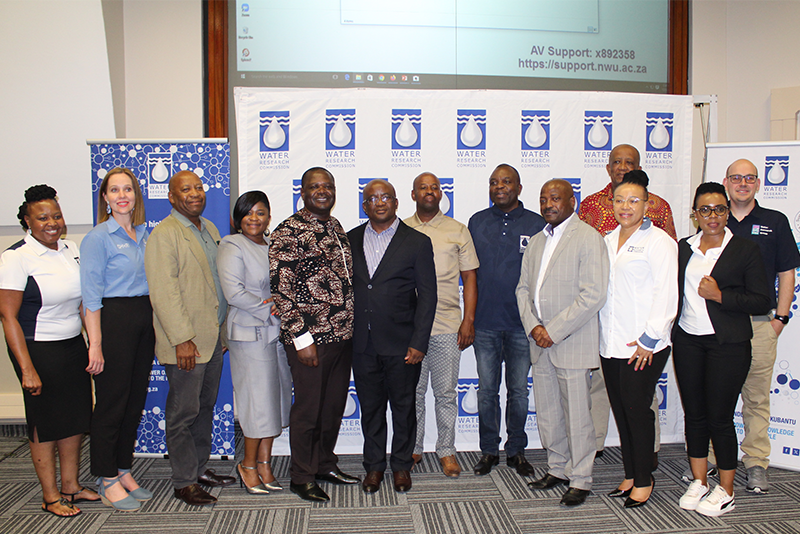By Gofaone Motsamai
The Water Research Commission (WRC) hosted a stakeholder engagement session on 3 December at the North-West University's (NWU’s) Mahikeng Campus to tackle South Africa’s water and sanitation challenges.
The event brought together representatives from municipalities, water boards, academia and other stakeholder groupings to refine and implement the WRC’s new strategy.
Virginia Molose, head of stakeholder engagement at the WRC, explained the shift in the commission’s approach.
“Our previous engagements focused primarily on researchers and academics. While valuable, this approach had limitations. We are now moving toward a province-specific strategy that directly engages municipalities, water boards and communities to address their challenges,” she said.
The programme covered key topics such as water governance, the impact of extreme weather events, groundwater management and solutions for non-point source pollution.
Non-point source pollution is a contamination of our ground water, waterways and ocean that results from everyday activities such as fertilising the lawn, walking pets, changing motor oil and littering. The issue of non-point source pollution was a recurring theme, with participants emphasising the need for innovative strategies to address its diffuse and challenging nature.
A central focus of the engagement was fostering partnerships. The WRC is in discussions with the NWU to formalise a partnership agreement aimed at leveraging the university’s resources to address provincial water challenges.
“The NWU has the capacity to serve as a catalyst in this province. By working together, we can address local water and sanitation issues more effectively,” said Virginia. “There’s no need for municipalities and departments to struggle with these challenges while they have a university nearby that can provide research and innovative solutions.”
Stakeholders included representatives from Magalies Water, the Ngaka Modiri Molema District Municipality, the Municipal Infrastructure Support Agency, and the Institute of Municipal Engineering of Southern Africa. They emphasised the importance of collaborative governance and proactive measures.
Virginia concluded by stressing the WRC’s commitment to practical solutions. “We presented knowledge products, research reports and tools to equip stakeholders with actionable insights. The goal is not just to identify problems but also to collaboratively engage with solutions,” she said.

Various stakeholders from municipalities, water boards, academia, chieftaincy and others at the stakeholder engagement session.
